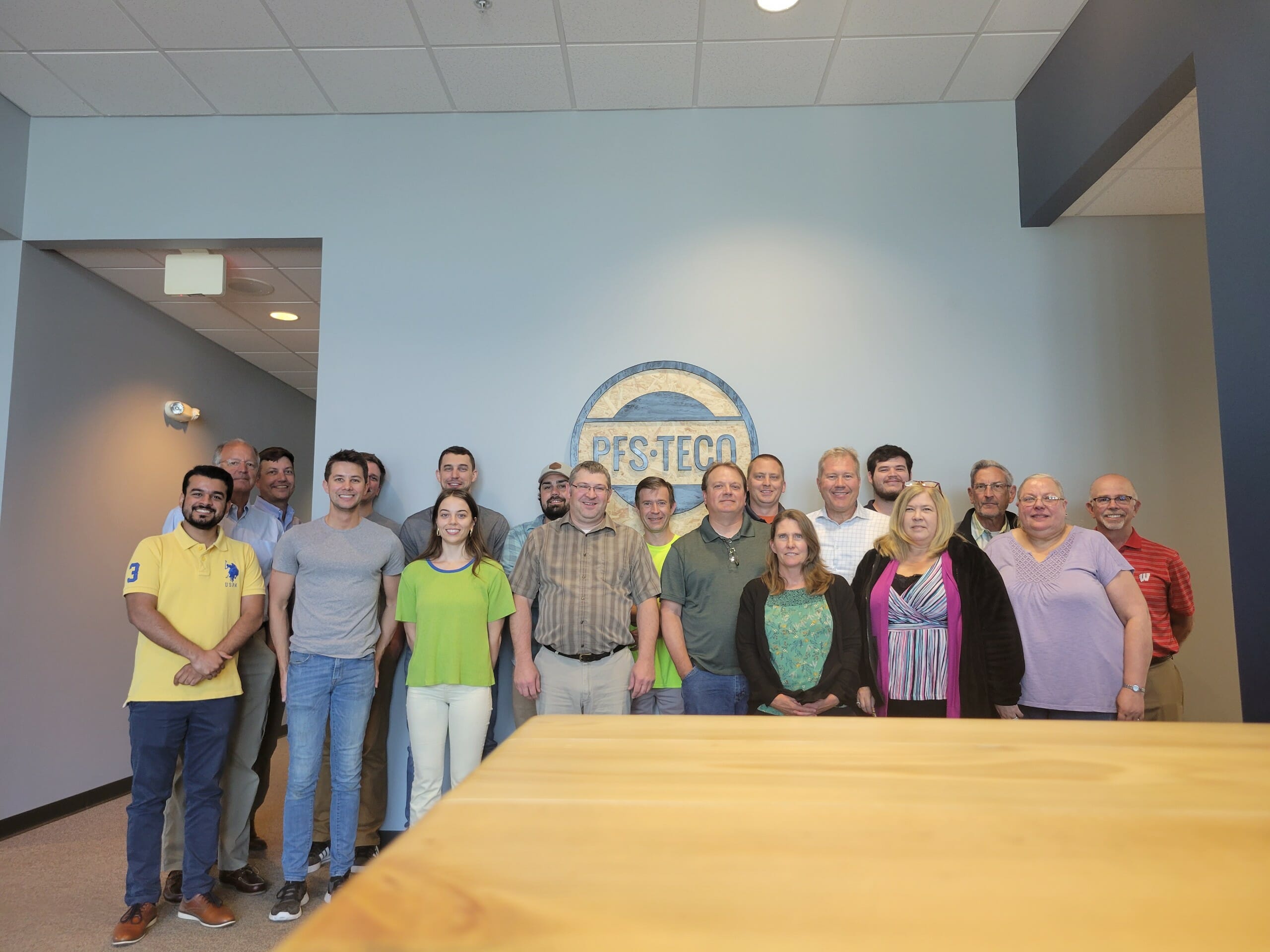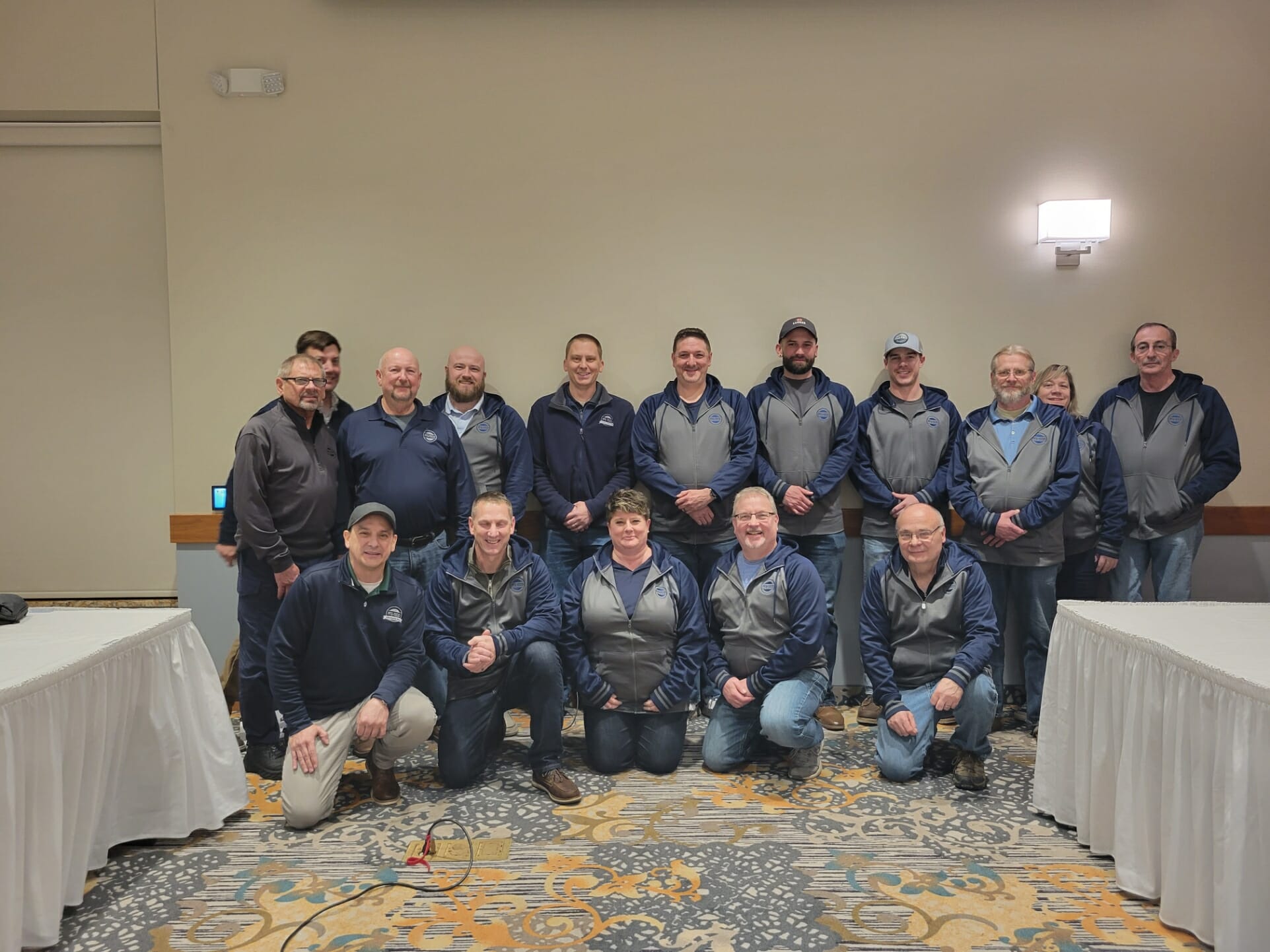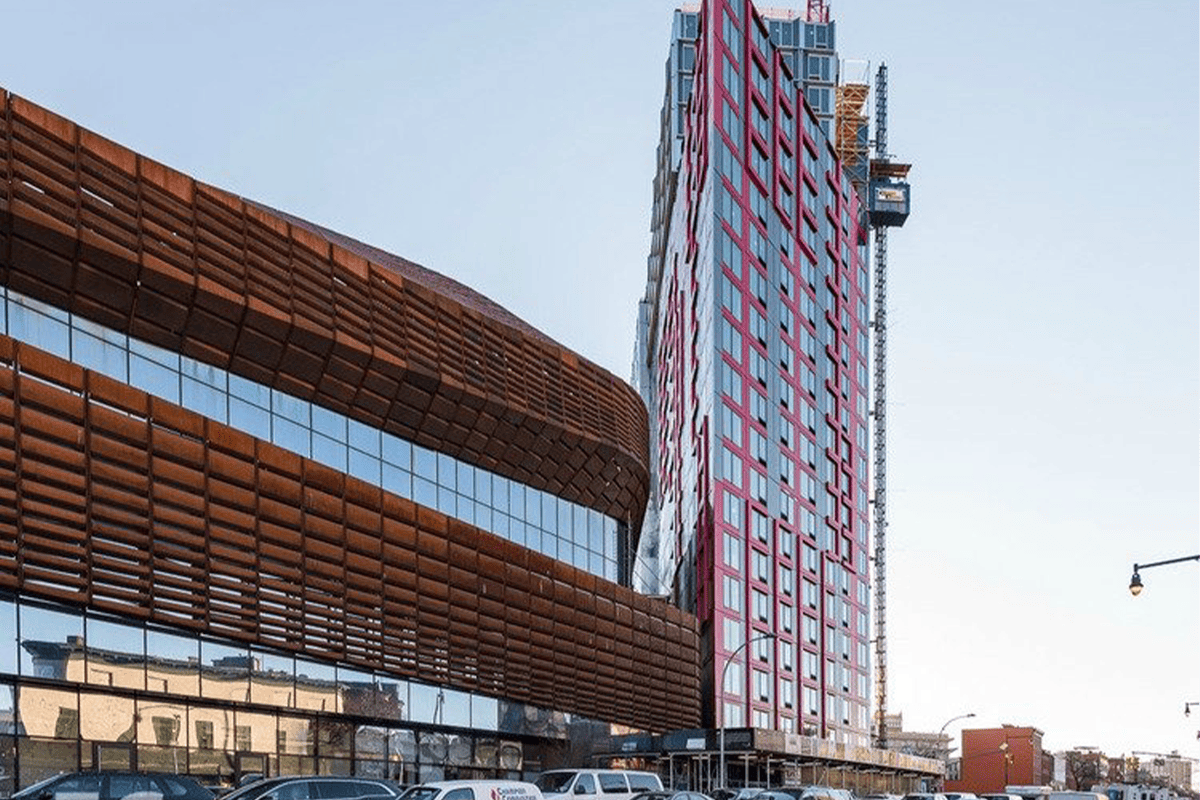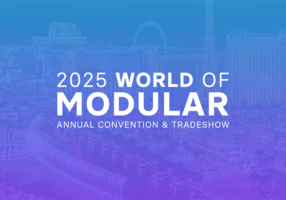Inside The Inspection Process With PFS TECO’s Bob Gorleski

Robert "Bob" Gorleski is the Vice President of the Manufactured Structures Division at PFS TECO.
Robert “Bob” Gorleski has been with PFS TECO for almost 25 years. He’s been in the building business for over 30 years, moving up to Vice President of the Manufactured Structures Division at PFS TECO. The inspection division, which he oversees, along with plan review, handles inspections for over 200 clients nationwide. He has been involved with the expansion of the company since 1999, and has seen the company grow. PFS TECO has not only expanded but has evolved: to becoming an employee-owned company. In fact, the company offers ESOP (employee stock ownership plans) available to 100 employees.
“You work better, you work harder, because you have a stake in the company,” said Bob. “You want to see it succeed, so that’s important. You’re not just coming in working eight to five every day. There’s something more beyond that." Currently, PFS TECO works in 38 states with a modular program, helping manufacturers stay on top of all relevant code regulations, state regulations, and other quality assurance expectations. PFS TECO started out as Plywood Fabrication Service in 1959, and grew in 1978 to include a third-party independent quality control service focused on plan reviews and inspection services for the housing industry.

PFS TECO corporate team
With the expansion, the company changed their name to PFS, and moved from their original location in the Pacific Northwest, establishing their headquarters in Madison, Wisconsin. In 2008, they moved just outside the city to Cottage Grove, while maintaining established offices in the Northeast, California, Texas, and North Carolina. In 2015, the company acquired TECO and became known as PFS Corporation dba PFS TECO. But even with all the moves, PFS TECO retains a unique perspective in the modular business as one of the longest running and respected evaluation companies in the industry.
Staff Retention at PFS Comes Down to Training and Education
Not everyone has to come from a traditional engineering degree in order to work in the inspection department. In fact, Bob’s team is made up of more than just code inspectors, as folks with construction backgrounds working as plan examiners, alongside engineers, former building officials, admins, and other clerical staff. What matters most is making sure that everyone has some form of certification or training to go out and inspect the QA process that manufacturing plants are implementing day to day. For PFS TECO, it means doing plan reviews, manufacturing plant inspections, and on-site construction with efficacy and in adherence to regional codes.
“We have training seminars that we do for our staff once a year, typically in the Northeast, cause that’s where the majority of our manufacturers are located,” said Bob. “Modular manufacturers and PFS TECO staff attend the seminar from along the whole East Coast and some from the Midwest as well. And we have industry professionals that come in and talk about different topics, like the IRC or IBC code that they may need to know." Typically, they tend to cover such things like:

PFS Semina team members
- PFS TECO internal plan review and inspection procedures;
- Manufacturer-specific quality control procedures;
- Co-development; and
- State codes that may be changed over the year
All of these updates and training conferences are incredibly valuable for both PFS and the manufacturers—especially when you look at it from the third-party view. As PFS TECO stands in between manufacturers, building officials, and other regulatory bodies, it follows that such a company would be constantly educating their inspectors and providing valuable code updates. “We’re the eyes and ears for the building officials and the regulatory bodies, so we follow a fine line,” said Bob. “We may have a contract with a manufacturer to do inspections and plan reviews, but we also have agreements with the states that we will follow the state procedure and our internal procedures to make sure manufacturers are doing what they’re supposed to be doing since building officials don’t get in those production facilities. So that’s why they work with evaluation agencies like PFS TECO."
What’s Easier, Stick Build or Modular? The QA Process Differs Slightly.
Inspections for both stick-build designs and modular constructions do not differ much from a quality standpoint. For example, wall inspections, exterior cladding, and interior reviews are the same for both a modular production facility and an on-site stick-built construction. The main differences lie in the actual making of said module or development, says Bob. “With modular, it’s closed construction, which means that things are concealed,” he said. “And you can’t see the mandatory construction items, like plumbing and electrical, when it gets on site for the building officials to take a look at."
A Job Well Done Means Satisfaction in the Inspection Process
Manufactured homes or buildings may be a part of the modular business, but as modular expands everywhere, they are being used in structures like townhouses, office buildings, and more. PFS TECO had the opportunity to work with a NY-based manufacturer, inspecting the plans, manufacturing, and execution of a 34-story building comprising over 1,000 modules in Brooklyn, NY, says Bob. It’s a feat to get all those modules in there, and making sure that the manufacturer has followed the code to the letter when making each individual module. But there are two parts to feeling satisfied in helping inspect a product, according to Bob. Manufacturers and architects are involved from inception of the design, and they work closely with PFS TECO plans examiners before submitting it for plan review. They need to make sure that everything is code compliant, and built according to the state code for that specific project.

32-story apartment building in Brooklyn
Then there’s the other part, seeing the production take place in the manufacturing facility itself. “We get great satisfaction at being in the production facility and watching a unit be fabricated from the floor department to the final finish out the door,” he said. “I think any time you get a product out the door and built on site, that’s a win. That makes you feel good. That means our team is doing what they’re supposed to be doing and the manufacturer’s doing what they have to do."
Manufacturers, Follow Your Compliance Assurance Program
For manufacturers to stand out during inspection, Bob recognizes the value of maintaining a rigorous quality control program. In fact, most of it has to do with making sure that everyone at the manufacturing facility knows what the compliance assurance program is, from top to bottom. And they have to do it in a timely fashion. “They have to have the staff to implement that program in the production facility,” he said. “From the floor department, the manufacturer has to have applicable checklists that they need to document that particular construction or fastening that they would need from their approved documentation, all the way up the line from a wall set to drywall insulation, exterior cladding, to right out the door.”
A good quality assurance process takes time into account, to make sure that all of these literal moving parts can gel and go out the door so they can meet their deadlines. But not all manufacturers can make that all happen immediately, and some may not be convinced. This is where Bob says you have to remind manufacturers that in the end, quality control and compliance falls on their shoulders— not PFS TECO. There are also the projects where sometimes building officials and regulatory agencies get too involved, questioning some of the validity or “stamp of approval” that PFS TECO provides during the plan review process. “You do get these building officials that do cross over the bounds,” says Bob. “You know, they don’t care if it’s a modular program built under their program for that particular state. They’re still gonna question your authority on that. And it’s a very fine line. But over the last 25 years, we had a handful of those."
PFS Best Practices For Inspections
Sure, as a modular manufacturer, you want to know your QA process inside and out. But when you’re in the position of doing plan reviews, inspecting the manufacturing stages for a new design, and on-site completion, you need to keep a few things in mind. For Bob, the most important thing is to manage expectations. “Make sure that they know that you know, as far as in a production facility, that the manufacturer is responsible for a hundred percent of their quality assurance process.” This also includes documentation—to make sure everyone is following the same process, that the manufacturer is following the compliance process set out in said documents, and that those processes are being communicated down the line. Another great practice is to encourage active communication. “Communication’s always the big one that arises between a manufacturer, the third party inspector, and the developer,” he said. “And then as far as us for implant inspections, it’ll be great to utilize technical resources.” Basically, make it easy to review documentation on-site via iPads and update them with more regularity.
Overall, communication, technology, and managing expectations dovetail to provide an easier way of updating, sharing, and streamlining the quality control process between all stakeholders. It also dovetails nicely with PFS overall goals for the future, which include implementing more technology and training to make inspections easier for all staff.
The Future Is Global Interconnectivity for PFS
Technology is always a nice-to-have, but PFS wants it to be a must-have for all staff members. And they are willing to provide it.
“We want to add value-added programs and software for either the division or the company,” said Bob. “We want to use more mobile and digital technology that can also implement new customer survey tools so they can give us more feedback on how we’re doing.” While training is still a crucial part of employee growth, PFS wants to take it a bit further with technology and software so staff can do their jobs. This could be anything from professional certifications, again through ICC, or others, or simply just providing the technology to help them complete their jobs with ease. Then there’s the hope of developing a mentoring program, and continuing education programs for staff.
Finally? PFS wants to broaden their reach globally. They’re already in Europe, and even in parts of Russia. But for now, a modest goal seems to be expanding in North America. “We want to get more of a presence, like Canada,” said Bob. “And a big one now too, is in Mexico, as a lot of manufacturers are going down there too.” And then there’s the more fun destinations he dreams about, like Hawaii. But this may have to wait “until retirement," he says.
About the Author: Karen P. Rivera is a freelance writer and editor with a passion for storytelling. She is a former United Nations-based reporter, with experience covering international breaking news, venture capital, emerging healthcare tech, and the video game industry.
More from Modular Advantage
AI, Faster Sets, and Automation: The Future of Modular is at World of Modular
While the modular building industry has long known that it can be an effective solution to increase affordable housing, the word is slowly spreading to more mainstream audiences. Three presentations at this year’s World of Modular in Las Vegas hope to provide insight and direction for those seeking a real solution to the crisis.
An Insider’s Guide to the 2025 World of Modular
The Modular Building Institute is bringing its global World of Modular (WOM) event back to Las Vegas, and with it comes some of the industry’s best opportunities for networking, business development, and education. Over the course of the conference’s four days, there will be numerous opportunities for attendees to connect, learn, and leverage event resources to get the most out of the conference.
Affordable Housing Now: The Industry’s Best Bring New Solutions to World of Modular
While the modular building industry has long known that it can be an effective solution to increase affordable housing, the word is slowly spreading to more mainstream audiences. Three presentations at this year’s World of Modular in Las Vegas hope to provide insight and direction for those seeking a real solution to the crisis.
Opportunities for Innovation in Modular Offsite Construction
Modular Offsite Construction has already shattered the myth that it only produces uninspired, box-like designs. Architectural innovations in module geometry, configurations, materials, and products make it possible to create visually stunning buildings without sacrificing functionality or efficiency.
Safe Modular Construction with Aerofilm Air Caster Transport
In collaboration with Aerofilm Systems, Heijmans developed innovative skids using air caster technology for moving modules easily and safely. These pallets are equipped with an auto-flow system, making operation extremely simple.
Miles, Modules, and Memes: Building a Modular Network One Flight at a Time
At the end of the day, social media is just another tool for building connections, and like any other tool, needs to be used skillfully to work properly. Use social media thoughtfully, and it will open doors to real opportunities and relationships you didn’t even see coming.
Falcon Structures: Thinking Inside the Box
Some of Falcon’s latest projects include creating container solutions for New York’s Central Park and an East Coast professional baseball team. More and more, Falcon is shipping out container bathrooms and locker rooms to improve traditionally difficult work environments, like those in oil and gas or construction.
UrbanBloc—From Passion to Industry Leader
UrbanBloc specializes in three main categories or markets – what they call “Phase 0” projects, amenities, and urban infill. Clients are often attracted to shipping containers because from a real estate perspective they are considered an asset. Having the flexibility to move and transport these assets allows owners to respond to different circumstances in a fluid manner that they can’t get with standard construction.
The Hospitality Game-Changer
“Hospitality is about more than just providing a service – it’s about delivering an experience,” says Anthony Halsch, CEO of ROXBOX. “And that’s where containers thrive. They allow us to create spaces that are unique, efficient, and sustainable.”
Container Conversions Counts on Simplicity to Provide Critical Solutions
Container Conversions has fabricated and developed thousands of containers for varied projects, including rental refrigeration options, offices, kitchens, temporary workplace housing, and mobile health clinics.










